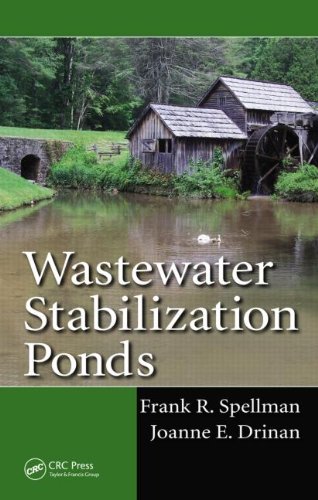

Most ebook files are in PDF format, so you can easily read them using various software such as Foxit Reader or directly on the Google Chrome browser.
Some ebook files are released by publishers in other formats such as .awz, .mobi, .epub, .fb2, etc. You may need to install specific software to read these formats on mobile/PC, such as Calibre.
Please read the tutorial at this link: https://ebookbell.com/faq
We offer FREE conversion to the popular formats you request; however, this may take some time. Therefore, right after payment, please email us, and we will try to provide the service as quickly as possible.
For some exceptional file formats or broken links (if any), please refrain from opening any disputes. Instead, email us first, and we will try to assist within a maximum of 6 hours.
EbookBell Team

4.3
18 reviewsPonds (lagoons) have been used for centuries with great success in the treatment of wastewater. Ponds created for treatment, known as stabilization ponds, model the physical and biochemical interactions that occur in natural ponds. Easy to build and manage, stabilization ponds can accommodate large fluctuations in flow, and provide results that are comparable to conventional systems at a much lower cost. Wastewater Stabilization Ponds examines the use of this natural and highly effective process. The text is centered on wastewater pond management processes and operation procedures that provide passive treatment with a minimum of energy-driven mechanical elements.
It highlights the environmental principles, practices, engineering, and mathematics involved in the design and operation of conventional wastewater stabilization ponds. It also explores the major processes, procedures, and design methods relevant to wastewater treatment ponds. This includes the basic processes, in-pond design evolution and enhancements, oxygen addition, and modifications that require energy, nutrient removal, as well as effluent total suspended solids removal. Emphasizing the design, construction, and operation of wastewater ponds, the book serves as a valuable resource for anyone seeking information on pond construction and operation, knowledge of pond operation, and assistance in certification exam preparation and study.
Sustainability and energy conservation are underlying themes throughout the text and the authors offer valuable information on potential renewable energy sources.